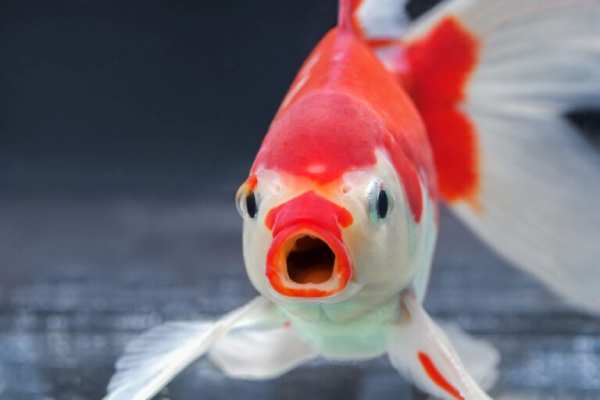Do fish feel pain? What science says
Many studies answer the question of whether fish feel pain with a resounding yes.
Aquarists and animal-loving fishermen have sometimes wondered if fish feel pain. Since fish cannot speak, it is not easy to find a satisfactory answer. However, science will help us better understand how fish perceive pain.
Biological foundations: how is pain produced?
The idea of pain provokes negative feelings in many people. However, pain has its reason for being, since it assumes an important warning function in the body.
Pain sends a signal to living beings to get rid of the offending stimulus to avoid serious damage caused by its source.

For a living being to feel pain, it needs to have pain receptors in its body. These receptors, called nociceptors, react to various stimuli that can trigger a pain signal. These can be, for example:
- Chemicals (poisons)
- Mechanical (injuries)
- Thermal (hot or cold)
However, the mere presence of nociceptors is not enough for a living being to consciously perceive pain. To do this, the stimulus received must be processed first.
This important task is assumed by the brain. Through neural pathways, it receives pain stimuli from the body and interprets them. This happens, for example, in the posterior somatosensory cortex or the anterior cingulate cortex.
How do fish feel pain?
Although fish are not mammals, it is believed that they have a perception of pain similar to ours. In fact, they are vertebrates like us.
What science says about pain receptors in fish
In a study on fish anatomy and physiology, scientists investigated whether they have the basic requirements to feel pain. They compared the nervous systems of people and fish and looked for nociceptors.
The result: not only people but also fish have these anatomical and physiological requirements to receive painful stimuli.
Thus, the fish studied not only had the necessary receptors but also brain areas similar to those of mammals and birds.
Do fish feel pain when fishing?
The book Do Fish Feel Pain? by biologist Victoria Braithwaite contains a detailed map of more than twenty pain receptors in the mouths and heads of fish. This also includes the points where the angler’s hook penetrates the fish. But do fish really feel pain?
Fish pain perception
It is clear that fish meet the requirements to perceive pain. However, the answer to whether these requirements are sufficient for a conscious perception of pain was offered by another study.
The scientists responsible investigated whether and how the fish reacted to pain stimuli. For example, they changed the temperature of the water or injected an active ingredient into their lip, under the effects of anesthesia, with an effect similar to that of rubbing a nettle.
The reactions provoked by these stimuli indicated that the fish feel pain. For example, they turned the other way or swam in circles. Others rubbed their mouths against the aquarium wall or stopped eating.
Is a bath too hot? This leaves a mark
Another study showed that goldfish that had been exposed to heat showed fear of high temperatures.
The researchers interpreted this behavior as evidence that fish not only feel pain but remember it.
Counterarguments: Don’t fish feel pain?
Although there is a lot of evidence that fish feel pain, there are also contrary opinions. These are the most important arguments against fish pain perception:
- Absence of cerebral cortex: there are scientists who consider the absence of cerebral cortex as a counterargument. This area of the brain is necessary for the conscious perception of pain. However, there may be other areas in fish that take over the function of the cerebral cortex.
- Absence of C fibers: Vertebrates have two types of nociceptors, which are delta A fibers and C fibers. C fibers conduct pain signals to the brain as clear pain . So far, researchers have not found these receptors in elasmobranchs, such as sharks or rays. However, due to the great variety of fish that exist, not all of them could be included in the studies.
- Persistent pain after surgery: Many people feel pain after surgery. In contrast, the fish did not show any behavioral changes after their skulls were drilled. For some researchers, this is an indication that the fish do not feel pain.
Conclusion: do fish feel pain or not?
Since fish do not speak, scream, or cry, it is impossible to answer this question definitively. However, there are many indications that fish could unconsciously feel pain.
For animal scientists, science answering questions such as whether fish feel pain or not is very important.
Read Also: What Is a Biotope Aquarium? Types & Classification
It is also important to know that the hook penetrates points on the fish’s body where there are pain receptors. This knowledge could eventually contribute to banning these methods in fishing.






